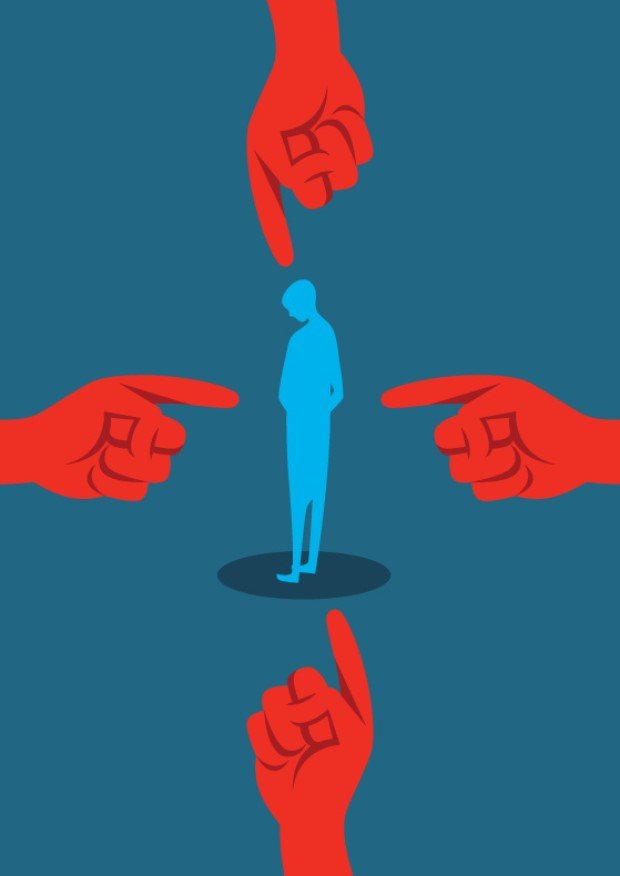"Effective emotion regulation is key to satisfying relationships and long-term health and well-being, and the more we learn about emotions, the more constructive and adaptive our regulation can become."
—T. Wranik and K.R. Scherer
What we don't understand about anger can hurt us, and the people around us. Every day the media bombards us with story after story about violent crimes from around the world. One thing most accounts have in common is anger. Someone flew into a rage.
During our evolution our ancestors’ ability to anger quickly, to deter and defend against threats, helped them survive in a predacious environment. However, as we continued to evolve, live closer together, and more effectively manage predators, our need for rage decreased. But our propensity for it remained. Today, to avoid killing each other over slight provocations we need to both learn and unlearn important things about anger. Our happiness and survival depend on it. We need to accept our anger and learn how to manage it. It’s difficult to create a fire drill if you don't believe you will ever face a fire. Accepting anger enables us to be proactive rather than reactive. Prediction is the basis of control. If you can predict an event you can better prepare for it even if you totally can't stop it.
We need to unlearn that anger must be expressed, at least in the way most people think of expressing anger. It's a myth that we fill with anger and need to blow it off like steam from a kettle. Years ago, the Primal Scream movement encouraged participants to release pent up anger and aggression by screaming at the top of their lungs. That misguided practice continues to compel some people to vent their frustration by beating a pillow, hitting a heavy bag, or “keeping it real” by expressing exactly how they feel without considering the effect such behaviors may have on the people they are mad at or on bystanders. Rehearsing expressing anger tends to prime one for their next angry episode. Also, expressing anger, even when not directed at someone, can have unpredictable social consequences—friends and peers may avoid you.
Another erroneous belief is that people or situations make you angry. That belief also needs to be unlearned. When situations occur that provoke anger the way you appraise the situation, and the meaning you assign to that appraisal, can turn a pilot light into a raging fire. The way you see it and what you tell yourself about what you see determines how well you manage your impulse to rage. This is paradoxical because people and situations do actually trigger our anger, however, the way you appraise the situation determines whether you express anger constructively or destructively. Shakespeare was correct, “thinking makes it so.”
Most people agree: anger can be destructive. But what about anger’s positive qualities? Anger surfaces when our needs go unmet. When we witness injustice in the world, anger compels us to act on our own behalf or on the behalf of others. Civil rights icon Rosa Parks wanted a seat on the bus, and she got angry when ordered to get up and move to the rear of the bus. Her anger at the injustice of racial segregation in the Jim Crow South changed the course of history.
In intimate relationships, anger often indicates that we care about some issue. Used appropriately, anger can have a positive effect. Since anger is inevitable, it is also predictable. Prediction is the basis of control. We might as well recognize our mistaken beliefs and learn how to constructively use anger to improve our relationships. We can stop feigning surprise next time our blood boils, and take this opportunity to be proactive rather than reactive and learn how to effectively express anger.
According to C. Nathan DeWall Ph.D., it is theorized that self-control is comprised of three distinct systems: learning, skill, and a limited energy resource. We need to learn about our emotions to manage them more effectively. It takes skill to know not only what to do intellectually when we get angry, but also how to manage our behavior to meet the challenges posed by difficult emotions. All of us have only so much energy per day. Once we deplete our daily energy allotment, we don’t have it available to help us control our impulses or to manage other difficult tasks. A useful way to monitor our limited energy resources is to use the acronym HALT reminds us to avoid becoming too Hungry, Angry, Lonely, or Tired.
We need to learn about our own emotions and the emotional lives of others if we plan to improve how we deal with anger. An interesting characteristic of anger is that it is described as a "secondary emotion." Usually, when we feel anger some primary feeling such as guilt, shame, or vulnerability has been tripped, and anger signals to us and to those around us that a threat is present. Anger swells quickly not only to help us mobilize against the threat but to also help us save face among our social group. In this way, according to Raymond Novaco, anger serves as a form of image control. Anger communicates to others that “I am angry, leave me alone or I am willing to defend myself now.” That's a great feature for guys running around on the savannah hunting for protein, but not so valuable for your intimate relationships.
A better alternative today is to recognize threats, appraise situations accurately, and use words to express how you feel—provided you don't have to run. Running is still a great survival skill. Cultivating emotional intelligence provides the best opportunity for us to keep our inner caveman in check, avoid jail, and maintain both our employment and our relationships.
We all get angry. The point I’m making is not how to avoid anger but rather to express anger effectively and constructively. To that end, one of the best skills one can learn is how to calm down. We get angry for various reasons. One of the biggest reasons is that we sense danger. Before you attempt to calm down you must feel safe. Move to a safe place and make the effort to calm down. When we feel angry or anxious our breathing becomes fast, loud, shallow, and irregular. To calm down, bring your attention to your breathing and do the opposite: breathe slowly, quietly, deeply, and regularly. Thich Nhat Hanh says he can control his anger in three breaths. He’s a Buddhist monk. Don't expect to corral yours that efficiently; he's practiced meditating for years. The point is your breathing controls your nervous system. When correctly used it is very effective in regulating your emotional states.
Other than getting to safety, take care of your anger before you attempt anything else. When it comes to stress we all think we're better at managing it than we really are. We often make situations worse when we attempt to solve problems under duress with adrenaline coursing through our veins. This idea goes back to the myth that we have to get the anger out. Don't fall for it. Take the time to calm down. If you attempt to resolve a problem between you and another person while agitated, mirror neurons in your brain activate mirror neurons in the other person's brain and both of you will most likely get upset. Calm down first.
What you say to yourself when angry is important. Pay attention to negative self-talk. This may be challenging because you’re upset and you may have never considered your internal dialogue or tried to change it. Saying soothing words to yourself will help you avoid boiling over.
Optimally, in an intimate relationship, approach your partner with a soft heart, soft eyes, soft voice, and soft hands. It helps to build trust. Remember human beings, when frightened or overwhelmed, turn to each other. It's only if we have experienced some previous traumatic event that we turn on each other.
Use your words. If you are unable to express your complaint succinctly, you are either not calm enough or you have not thought about the issue well enough to discuss it effectively. Words formed into “I statements” can be very effective because the structure of the “I statement” helps you articulate the problem without blaming your partner. The object is to state the problem, how the problem makes you feel, and what you need from your partner to correct it. Here’s an example. “When you’re late coming home, I feel worried. I need you to call when you are going to be late.” Another useful approach is the “XYZ Statement.” Here’s an example. When X happens in situation Y, I felt Z. Both “I Statements” and “XYZ Statements” are non-blaming. Remember, conflicts are expressed through language. How you say things, the words you choose, can be the difference between a successful outcome or a broken relationship.
Relational statements make clear what the relationship means to you. Relational statements also help you remain calm by reminding you to remember that you are having a conflict or disagreement with an intimate partner—someone you care about. Here are some examples of relational statements. “This issue is important to me.” “You are important to me,” and “Our relationship is important to me.” Relational statements, when properly used, express the positive value you place on the relationship between you and your partner and increase intimacy while reducing anger and frustration.
Listening to understand can help keep you and your partner calm. Listening is the first step toward validating feelings. Invalidation can ignite anger and escalate a conflict faster than gasoline and matches. Listen so that you can respond to what you hear rather than the voice in your head that is often emanating from the most primitive regions of your brain—the part that only understands fight or flight. Remember, you're angry at an intimate partner, someone you care about. Listening helps you suppress impulses which is the key to expressing them constructively rather than destructively.
Anger management takes practice, honesty, open-mindedness, a willingness to stay calm, positive self-talk, compassion, the expression of your feelings using “I Statements, XYZ Statements, and Relational Statements, and active listening to validate and understand the feelings behind your partner’s words. Controlling your emotions is worth it. Practice for yourself, your partner, and for the world.


















